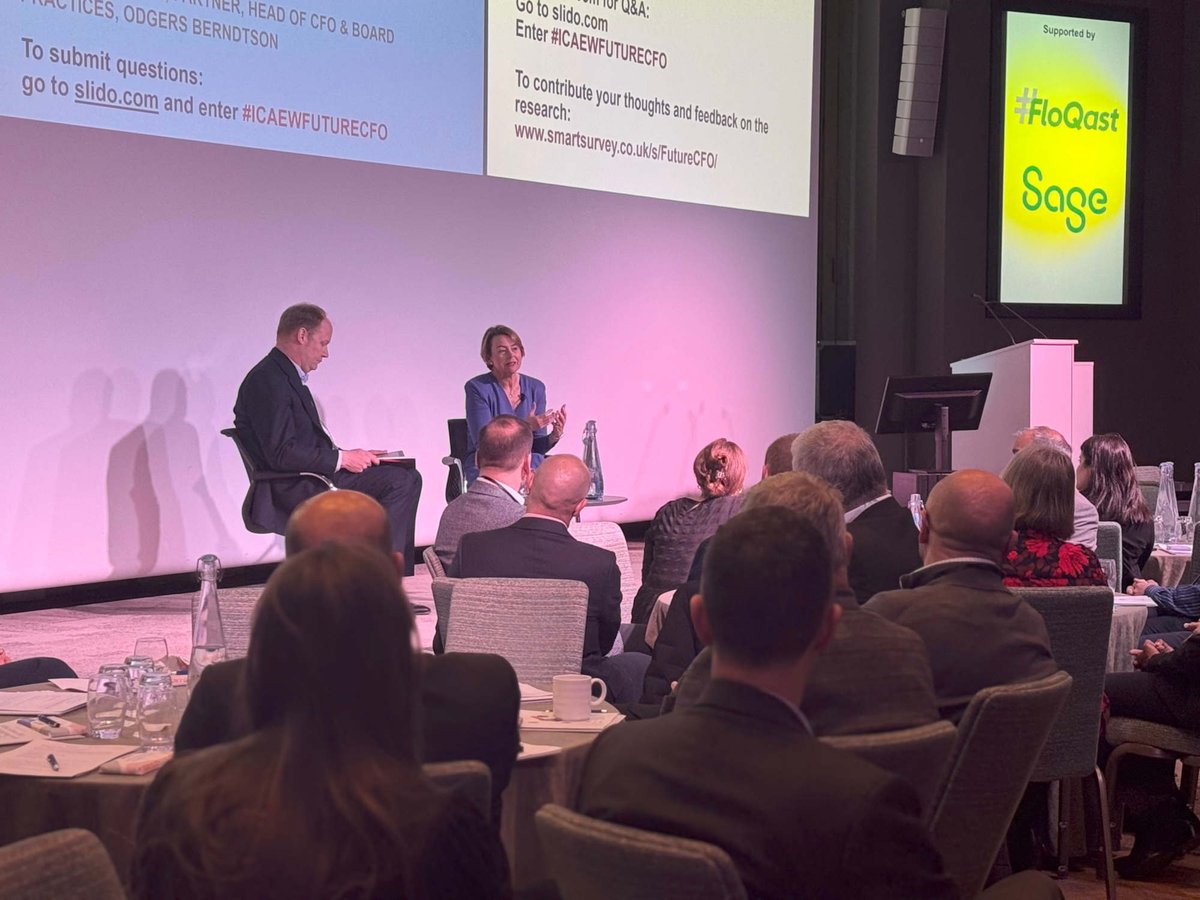If I were to draw a caricature of a CFO, it would probably be a man called Andy pointing to a shareholder return calculation and saying “no”. To many, CFOs are stalwart members of the Milton Friedman school of capitalism.
It doesn’t fit the reality. Over the past year, Board Intelligence, in partnership with ICAEW, Accounting for Sustainability and Odgers Berndtson, has interviewed more than 150 finance leaders. What we’ve found, and shared in our latest research report, The CFO’s Fairer Future Toolkit, is that CFOs today look very different. And they’re enthusiastically saying yes to a much broader concept of value that considers their business’s impact on the economic and environmental ecosystems on which we all depend.
Other research, including the A4S Finance Leaders’ Sustainability Barometer, and ACCA’s Chief Value Officer – find something similar: CFOs know all too well that customers, regulators, employees and investors are demanding more. CFOs are no longer asking why it’s their problem, but how they can help.
It’s hard to overstate how important CFO buy-in is for a business to meaningfully address its impact on society and the planet. As our colleague Dr Scarlett Brown said at the event launching the report, “When it comes to taking action, if the CFO isn’t onboard, it’s not going to happen.”
The lively discussions at this event, ‘Beyond Finance: The Changing Role of the CFO’, made clear to me that many CFOs were going beyond simply being onboard with change, and taking active steps to lead it.
What are CFOs doing?
CFOs have a clear understanding of what they bring to the table. And the 160 finance leaders at the event agreed with one of the key themes from the research: that CFOs are uniquely positioned to bring credibility and rigour to the way non-financial value is measured and reported.
As one attendee put it, CFOs are precise, practical people. Getting stuff done with rigour comes with the job.
Several also spoke about their real-world experiences of applying the five levers identified in the Fairer Future Toolkit — measuring and reporting on social value, making non-financial metrics matter, flexing their spending muscles, addressing their tax obligations and using their voice to tell a different story.
For example, Louise Britnell, CFO of co-operative bank talked about putting ESG metrics into a balanced scorecard and assigning more KPIs around these than around financial performance. It made a major difference, she said, giving visibility to wider measures of value for day-to-day decision making, rather than consigning them to a once-a-year sustainability report.
This isn’t purpose washing. The CFOs present were all open about the need to make trade-offs, and honest about how sometimes financial and non-financial value aren’t straightforwardly comparable. Occasionally you need to stop your ship from sinking before thinking about the state of the ocean.
But then that’s the nature of the job. Finance chiefs constantly grapple with competing objectives and competing budget requests. There’s no reason not to apply the same level-headed analysis to the pursuit of value in its broadest sense.
Again, this is one of the reasons why the CFO is ideally suited to changing the conversation around social and environmental impact.
Javier Echave, CFO at Heathrow Airport Holdings, articulated their key role in translating why issues like sustainability and staff mental health matter for investors, some of whom were “the ultimate capitalists”, by framing it in financial terms.
Put simply, as Chief Executive of ICAEW stated plainly in his opening remarks, businesses can’t thrive when societies fail. Allowing society to collapse or the planet to burn exposes companies to future risks that can dwarf the cost of addressing them now.
Long-term thinking
There was some debate in the room about the validity of the term ’non-financial value’, given the interdependence of business with the rest of society and the planet. Arguably, non-financial metrics simply correspond to long-term financial value.
I never thought I’d hear a CFO talking about the dangers of paying too much attention to the balance sheet and cash position, but that’s exactly what one did, pointing out that doing so can be dangerously short-termist in a world where, for example, climate change in distant lands can disrupt supply chains for companies here.
Taking the long-term view is hardly a difficult adjustment for the finance profession. CFOs are used to thinking about net present value and allocating capital with distant returns in mind.
But don’t underestimate the impact it can have when the person who’s most expected to champion conventional financial returns instead makes the case for holistic value, even if it is framed in terms of long-term financial benefits.
When the CFO speaks, with the backing of rigorous reporting and analysis, people listen. And by all accounts, they’re ready to use their voices.
Interested in sharing your views on the changing role of the CFO? Take part in the second phase of our research here.



